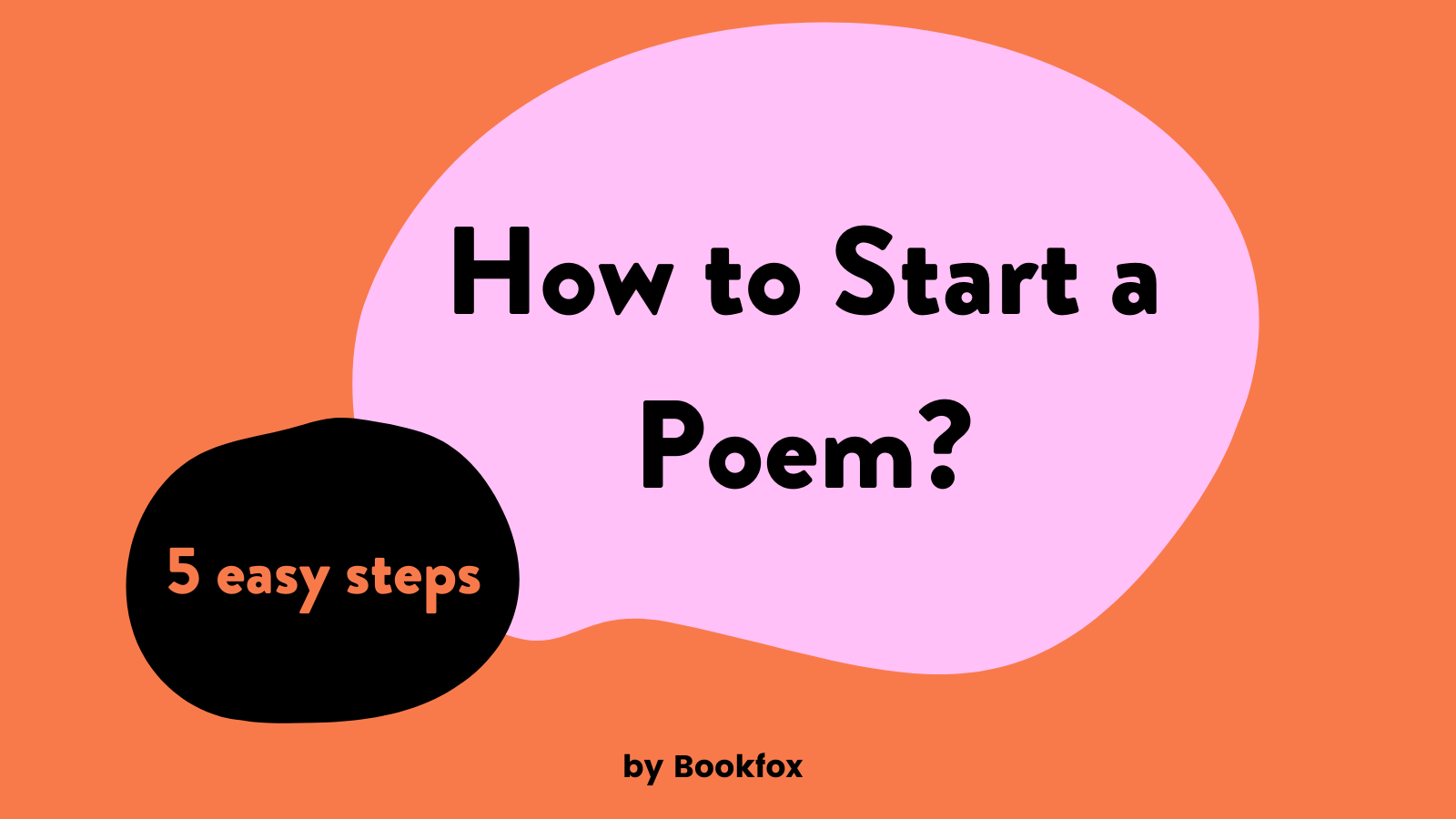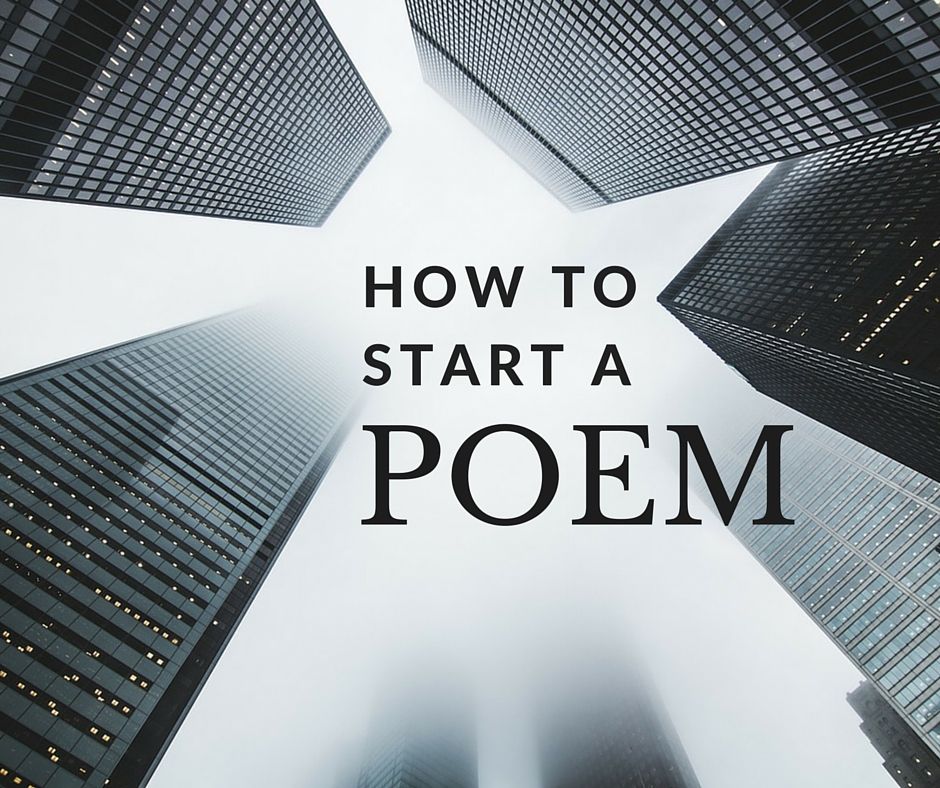
 I was sitting down with a friend one day who asked me, “What is poetry and how do you make it?”
I was sitting down with a friend one day who asked me, “What is poetry and how do you make it?”
Mind you, she had an English 100 class she needed to interview a writer for, so it wasn’t entirely that random of a question. But, even for me, having been eagerly writing since the age of fourteen, this was not a short order question. Having years of education around literature and poetry and the ins and outs of the English language, it was going to take me longer than a fifteen minute coffee hang to explain poetry and how you make it.
However, there are some things that are very simple to the art that allow anyone to start writing poetry now. Not that it’s going to be easy, necessarily, but if you want to write poetry, and write it well, this is how to start a poem.
Step 1: Discover the Art of Seeing
I took a drawing class my first semester of university for fun and I’m so glad I did. It reshaped my eye in a way I didn’t know drawing could. Drawing taught me the art of Seeing. Seeing taught me how to write more so than any class or workshop could.
Quite frankly, even if you aren’t in a creative field, this will still not only enhance the skill you are trying to hone in on, but will enhance your life. I’m not kidding, this trick is a game changer.
Unless you are blind, you can see. So that’s obvious. But even though most everyone can see, most everyone cannot really see. Or, rather, they choose not to.
The busyness of life seems to cloud the details of the wide world around us. We are constantly missing out on things because we have blinders on. I took a semester of writing practice to try and really mind the world around me … and things changed. My poetry was not just full of the things that inherently capture the human eye, but were full of exploration on the minute, misunderstood, and overlooked.
Take time to look and really look around you, and when you do, try to take mental pictures of what you’re looking at. Then, take those images and ruminate on them for awhile. Though some poetry is short, that doesn’t mean it wasn’t given due time. Patience is key for poetry.
In Annie Dillard’s Pilgrim at Tinker Creek, she gives a full chapter on Seeing. Give it a look and hopefully she can enlighten you further on the ever-important topic of Seeing.
Here’s a teaser:
“It is still the first week in January, and I’ve got great plans. I’ve been thinking about seeing. There are lots of things to see, unwrapped gifts and free surprises. The world is fairly studded and strewn with pennies cast broadside from a generous hand. But—and this is the point—who gets excited by a mere penny? If you follow one arrow, if you crouch motionless on a bank to watch a tremulous ripple thrill on the water and are rewarded by the sight of a muskrat kid paddling from its den, will you count that sight a chip of copper only, and go your rueful way? It is dire poverty indeed when a man is so malnourished and fatigued that he won’t stoop to pick up a penny. But if you cultivate a healthy poverty and simplicity, so that finding a penny will literally make your day, then, since the world is in fact planted in pennies, you have with your poverty bought a lifetime of days. It is that simple. What you see is what you get.”
Step 2: Thus, Pay Attention
I’m not being repetitive. The art of Seeing comes with the practice of paying attention. Regain curiosity for the world around you.
This you can do in real time by simply looking up when you walk, rather than looking down, like most everyone does. Shift your gaze, make a new sightline for yourself, and take in this new perspective. We get so wrapt in our own minds and in our own routines that we forget there’s life around us, and life abundant.
The art of Seeing can only be truly harnessed if we make a habit of Paying Attention.
And when you notice things because you’re now paying attention, write down what catches your wandering eye, or even your ear. The sounds make an impact as well. Keep this log close to you: on your phone, in a small pocket-sized notebook. You’ll refer to these moments as you begin making.
Step 3: Study Up
This isn’t Poetry 101, but that doesn’t mean there isn’t work to be done.
I’ve heard countless times that in order to be successful at anything, you have to look to those who have been successful in whatever area you’re working towards and, essentially, repeat. Or, at least, learn.
To start this practically, pick an era of poetry and go to town; read significant works from an era of your choosing and see how poetry was made and in what context. Literature and poetry often will reveal much about the time in which they were written. Styles shifted over history. New methods emerged and faded out. Find out why.
From your studies you may find an author you particularly like or dislike. Learn all you can about their work: why they made it and how they made it, whether you like it or not. You’ll learn either way and your skill will grow.
You’ll also see particular names come up a lot because they were renowned for their work. Read as much as you can when looking to those authors. Find out why they were so successful in their field; why they were so famous then and even now. This labor will build an ear for good poetry in you and you can then, hopefully, start making good poetry of your own.
And, just when you feel pumped enough off other people’s work that you have the urge to start making your own, read some books on the work of poetry itself. These are some recommended reads to get you started:
- Making Your Own Days by Kenneth Koch
- Western Wind by John Frederick Nims
- Mary Oliver’s A Poetry Handbook
- Kim Addonizio’s and Dorianne Laux’s The Poet’s Companion
- W. H. Auden’s The Dyer’s Hand
From these and many more you’ll learn the styles, the devices, the forms of poetry and so much more. And I’d even suggest looking up poetry workshops in your area. They could be held at a university near by or at your local library.
The more you learn, and continue to learn, the better prepared you will be to make a work like the ones you’ve so admired.
Step 4: Play
Now that you’ve finished your studies, school is out and it’s time to play.
Refer to the authors you’ve gleaned through, the structures you’ve discovered, the literary devices you’ve seen time and time again. Go back and look at the notes you’ve taken while Seeing: lines you may have picked up, images you may have captured, and write. Try to put words to your pictures, sounds, ruminations. Have fun with language; the way words can melt together to make something beautiful.
Here, I’ve offered you some places to start. Classic ways language has been poetically used over time. Make a game out of it. (If you don’t know what any of these are, you haven’t studied enough. Go back to Step 3.)
Forms and types of Poetry that you can try to tackle:
- Found Poem
- Haiku
- Sonnet (Shakespearean or Petrarchan)
- Ode
- Free Verse
- Pastoral
- Villanelle
Literary devices you can challenge yourself to use:
- Metaphor
- Anaphora
- Alliteration
- Onomatopoeia
- Consonance
- Dissonance
- Juxtaposition
- Symbol
Elements of poetry you can harness in your work:
- Line breaks
- Theme
- Setting
- Mood
- Voice
- Perspective
And now that you’ve made something, revise.
Say it out loud, with your actual voice. Does it roll off your tongue? What would make it sound better?
And cut. Show, don’t tell. Only keep what’s necessary to the image or idea itself.
Do this all at least three times over until you are perfectly satisfied with it.
Congratulations, you’ve made a poem.
Step 5: Practice
If you want to write poetry, you must continue to pursue it. If you plan on being a creative, you’ll have to continually discipline yourself. Keep your eye and your mind sharp. Work at Seeing well. Keep reading and learning about poetry (there’s an abundance of it out there).
And, most importantly, practice your writing. Keep writing poetry, even if it becomes trying or you hate it. Make your writing a daily task; most successful writers do. Practice is a habit all creatives should be doing.
And once you learn how to start a poem, you’ll also learn how to finish poems. Keep doing that again and again and you will become a poet.
And once you’ve practiced enough, it will become a reflex; it will become natural. The hatred over every measly metaphor, every aching simile, every moment spent fuming over that right word, will soon dissipate… to a degree. Now, you’re not only writing poetry, but you are a Poet and, I dare say, even Shakespeare would be proud.

One thought on “How to Start a Poem? 5 Easy Steps”
I loved your explanations 🙋🏼♀️❤️❤️❤️